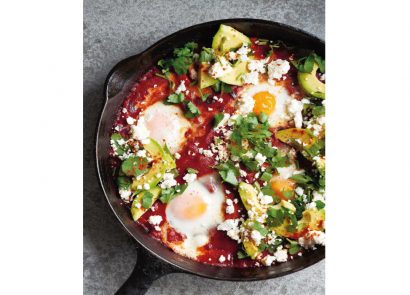Your morning alarm goes off. What do you do? Pull yourself out of bed and mentally go through all the tasks you’ve got noted in your diary for the day ahead? Or let your mind wander and guide you towards the activities you would most like to do? A day trip to the beach, perhaps. An impromptu coffee with friends. According to statistics, the average woman is so busy that she plans her life five weeks in advance, while 10 percent set their schedule for the next 10 weeks. Sure, there might be no room for spare time within these plans but, in fact, 46 percent of us admit to being anxious at the thought of being faced with free time.
Social problems
Despite all this, we still long to have moments in our week or day to be more spontaneous and go where whim takes us. To have more (dare we say it) fun. “A balanced life is something that seems to be elusive for many adults today, who find themselves just trying to keep up with the daily grind,” says Niyc Pidgeon, positive psychologist and author of Now Is Your Chance (£10.99, Hay House). “What results is psychological burnout and feelings of low mood, which ultimately affect your overall level of motivation and ability to thrive.”
Not a problem faced by our ancestors, for whom spontaneity was a means to escape danger and develop as a race. So, what’s getting in the way? “Although the internet and social media is an incredible resource, it’s also given us too much opportunity to plan everything we do in detail,” says Niyc. “We no longer go with the flow or trust our own instincts to let things naturally evolve. Plus, because we know what’s going on in our friends’ and families’ lives, there’s a risk of feeling a need to compete with that – to show how much fun we’re also having – on platforms such as Facebook and Instagram.”
Health ahead
It’s no wonder then that the latest science backs spontaneous living. A study by Florida State University found that people who make snap decisions are less likely to experience symptoms of anxiety or depression, while further research from the University of North Caroline at Chapel Hill in America revealed that the more time you spend developing social networks, the less likely you are to experience high blood pressure, obesity and disease. In other words, the longer you can expect to live.
In contrast, the pressure we unwittingly place on ourselves by booking something into every single minute of the day – and the consequent stress of having to meet all those appointments – can increase our risk of heart attack four-fold. Being too organised can make us question our own decisions, suffocate our creativity and stub out our joy. Sound familiar? You’re not alone. A recent poll revealed that 60 percent of Brits feel they take life too seriously and have forgotten how to have fun, while 75 percent of people admit to not saying “yes” often enough.
Seven steps to being spontaneous
The good news is that reversing this trend and breaking bad habits can be done. It’s even surprisingly easy. After all, being spontaneous doesn’t have to mean jacking it all in for an around-the-world adventure; it could be as simple as choosing to sit in a different seat on the bus. The wellbeing benefits will be the same. Try one of these simple steps every day to be more spontaneous.
1. Surprise yourself
Stuck in a rut? “Write a shortlist of five to 10 things that bring you joy, then write each on a separate slip of paper,” suggests Niyc. “Fold each piece of paper and put it into a bowl. Commit to picking out – and doing – one idea from the bowl every day to start doing more of the things you love.”
2. Let loose
Scientists from John Hopkin’s University in Maryland, USA, discovered that, when jazz musicians improvise, an area of the brain linked with creativity and self-expression turns on. How to benefit at home? “Set three alarms on your phone with your favourite party songs,” says Niyc. “When the alarms go off, stop what you’re doing and dance without inhibition, like there’s nobody watching. You’ll experience a mood boost at the same time.”
3. Break the rules
Around 40 percent of the activities we do every day are performed in almost exactly the same situation. Gain a new perspective on life by escaping your habitual routine. Try sitting in a different seat or area of the bus, cross your legs the opposite way to usual, brush your teeth with the opposite hand, walk on the opposite side of the street or buy a new flavour of sandwich for lunch.
4. Make memories
According to Harvard Medical School research, learning a new skill or trying something out of the ordinary can prevent cognitive decline. Share the benefits by enlisting a pal. “Make an agreement with a friend to do one random but fun activity each week and take it in turns to choose,” says Niyc. “You might feel some resistance to your friends’ ideas at first, but this will help to get you out of your comfort zone and embrace the variety of life.”
5. Unleash your inner child
“Choose to see the world through child-like eyes for a whole day,” says Niyc. “Allow yourself to be fascinated by the world and people around you. Ask yourself, ‘how could I make this experience into a game?’ Play ‘I-spy’, for example, and notice all of the happy, wondrous and fun things around you.” North Dakota State University researchers found that the more an adult acts and thinks like a child, the more imaginative he or she becomes.
6. Say yes
Studies have shown that people who have active social lives are twice as likely to outlive people who lead solitary lives. Why not swap lonely gym sessions for team sports training. Apps such as Find A Player, Sporting Around and Sports Meets connect people with shared interests in group sport.
7. Learn how to play
Playfulness has been linked to a reduction in anxiety and depression. “Invite friends or family for dinner and ask each person to bring a game,” recommends Niyc. “Instead of talking about work and problems, you’ll notice how much lighter and brighter you feel when you play charades, cards or even hide and seek.”
Not for you? Play can take many forms – try a game of frisbee in the park, gardening, or freewheeling on your bike, instead.




















